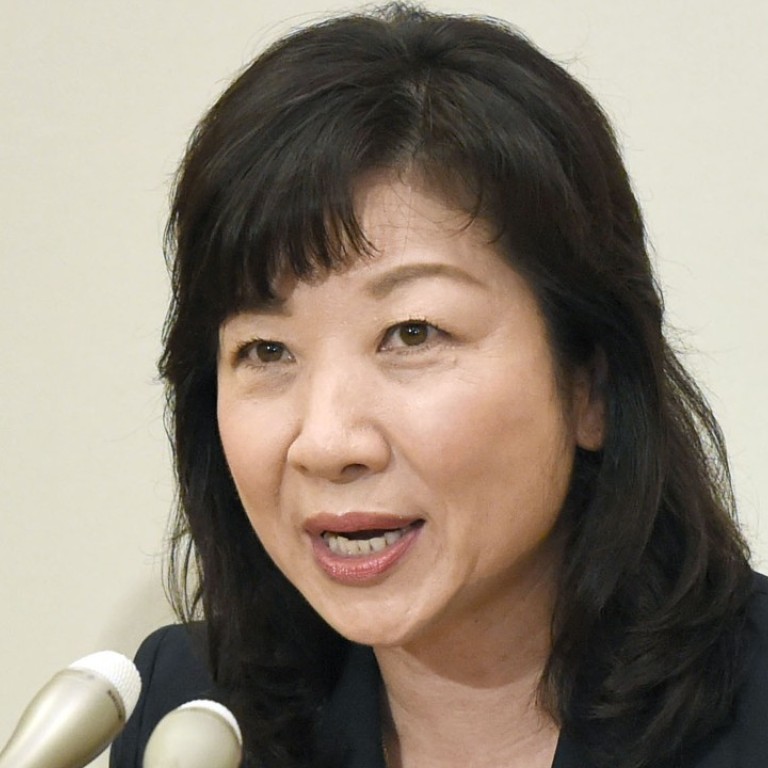
Image is everything: Japan minister’s bid for leadership hurt by husband’s criminal past
Weekly magazine reported Seiko Noda’s husband, Fuminobu, served as the executive secretary of the Masayama-gumi – a crime syndicate based in Kyoto
Japan communication chief Seiko Noda’s chances of becoming the country’s first female prime minister have been damaged after it was revealed her husband was once a member of a notorious criminal group.
In its September 28 edition, the Shukan Bunshun weekly magazine reported that Noda’s husband, Fuminobu, served as the executive secretary of the Masayama-gumi – a crime syndicate based in Kyoto.
The gang is affiliated with the Aizukotetsu-kai – one of the oldest yakuza organisations in Japan with criminal roots dating back to the mid-1800s – as well as the larger and more powerful Kobe Yamaguchi-gumi, according to the Tokyo Reporter website.
Noda’s husband left the Masayama-gumi soon before it disbanded in early 2000, after its leader was jailed in connection with a murder. Nevertheless, he was convicted of two crimes; once in 1999 for forging an official document by using his brother’s driving licence after a traffic violation; and another in 2005 for using spam emails to promote an adult website.
Noda married Fuminobu in 2011, five years after divorcing her first husband, and while she was building a reputation as a future leader of the Liberal Democratic Party.
A self-declared conservative, 57-year-old Noda was first elected to the Diet in 1993 and was the youngest cabinet minister since the end of the second world war, when she was given the posts and telecommunications portfolio under then prime minister Keizo Obuchi in 1998.
Her fierce opposition to postal privatisation along with her efforts to deal with Japan’s problem of a declining birth rate helped her to stand out.
In 2015, Noda made her first challenge to Prime Minister Shinzo Abe’s leadership of the party. Although she was defeated on that occasion, she announced within days of being brought into the cabinet as minister of internal affairs and communications that she would once again attempt to usurp Abe when the party holds its presidential election in September of next year.
Given the timing of the revelations about Noda’s husband – with Abe dissolving the lower house of parliament and calling a general election in October – analysts say it is possible that it came from someone very senior within Abe’s ruling LDP.
“This article is clearly an attack that is designed to damage Noda’s reputation and I think that it will do that if she decides to still run for the leadership of the LDP,” said Makoto Watanabe, an associate professor of communications and media at Hokkaido Bunkyo University.
“It’s unfortunate, but image is probably more important than ability in Japanese politics, so even though something like this does not impact her ability to do the job, it will be remembered,” he said.
It remains unclear if Noda knew Fuminobu before he left the yakuza group or if she was aware of his background.
“Abe has a policy of keeping his potential rivals close to him, which is why Noda and other possible candidates for the leadership were brought into the cabinet this time around,” Watanabe said. “A leak like this could be an effort to silence one of those rivals.”

